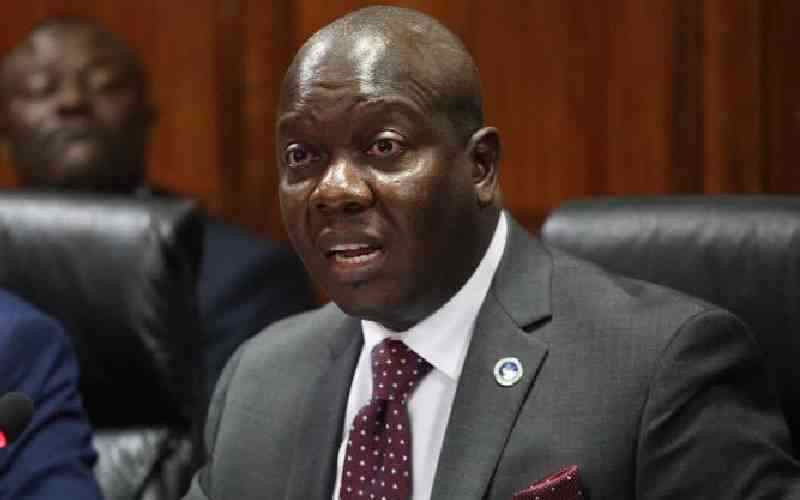Kenya’s Director of Public Prosecutions (DPP) Renson Ingonga has defended his office’s controversial decision to charge several anti-government protesters with terrorism, arguing that the prosecutions are grounded in law and evidence not political pressure.
Speaking in Nairobi on Thursday, Ingonga stated that acts of destruction targeting government installations during the recent demonstrations fall under the legal definition of terrorism. “Terrorism is not limited to guns or bombings; destroying property, especially government property, also qualifies as terrorism,” he said.
The DPP’s remarks come amid mounting criticism from civil society groups, opposition leaders, and the public, who accuse state agencies of using heavy-handed legal tactics to quell dissent. Prominent activist Boniface Mwangi was arrested last weekend and accused of facilitating terror during the June 25 protests held in memory of victims of last year’s tax hike demonstrations. Police also alleged he possessed ammunition unlawfully.
However, by Monday, Mwangi was formally charged only with possession of ammunition without a valid firearm certificate leading many to believe the ODPP had backtracked in response to public outcry. Ingonga dismissed such perceptions, insisting that prosecutorial decisions are guided by the “Decision to Charge Guidelines,” which emphasize uniform, evidence-based prosecution and people-centered justice.
“We must resist pressure, fear, or favour,” Ingonga said. “If demonstrations are against the Executive and people are charged with terrorism, it does not mean there is government pressure on me.”
He also reminded critics that the Anti-Terrorism law being invoked was enacted by Parliament in 2014 ironically, by the same legislative body now questioning its application.
In a related development, 37 youth who had been charged with terrorism-related offences following the June 25 and July 7 protests were released on cash bail of Ksh.50,000 or an alternative bond of Ksh.200,000 each.
While the ODPP insists the charges are lawful, rights groups warn that branding protesters as terrorists could set a dangerous precedent for democratic expression in Kenya. The debate continues as more court hearings loom.

